We must have breathable air

Physicians and health workers at Dhaka Shishu Hospital are struggling with a surge of child patients suffering from pneumonia. All the hospital beds are full and each day hundreds of children are treated as outdoor patients. Adults with breathing related problems are also suffering. Doctors say that air pollution is one of the main contributing factors behind cold-related diseases. As we know, Dhaka's air pollution has reached unbearable levels, recently ranking as the second highest in the world, prompting a government advisory for people to wear masks outdoors and for individuals with respiratory issues, allergies, or other vulnerabilities to avoid going out unless absolutely necessary.
According to the World Health Organization (WHO), air pollution kills an estimated seven million people worldwide every year, mainly due to increased mortality from stroke, heart disease, chronic obstructive pulmonary disease, lung cancer, and acute respiratory infections. Over the last decade, the air quality in Dhaka, as well as in towns and villages near toxic smoke-emitting industries, has deteriorated significantly. Air pollution worsens during the colder months, with a persistent smog that lingers, unlike the monsoon months when rain temporarily alleviates the issue. However, the air quality remains poor throughout the year, causing chronic respiratory problems, particularly among children and the elderly, who are more vulnerable.
Unfortunately, little has been done over the years to mitigate the factors contributing to air pollution. Dust is a major nuisance for Dhaka residents, caused by year-long infrastructure and real estate development projects. This unregulated construction has led to unprecedented levels of airborne dust. Additionally, unfit vehicles spewing noxious fumes into the air worsen the situation, especially during daily traffic gridlocks, trapping people, including children, in clouds of poisonous gases. Brick kilns, which have proliferated on the outskirts of cities, further contribute to air pollution, affecting nearby residents.
The current interim government, along with future administrations, must take responsibility for controlling or eliminating the factors that have made our air almost unbreathable. Measures include banning unfit vehicles, enforcing public safety rules during construction, and prohibiting developers from leaving piles of dust on the streets. Air quality must be monitored regularly, particularly in high-pollution areas. Implementing low-emission zones, such as pedestrian-only streets and public spaces, creating more cycling and rickshaw lanes, and facilitating pedestrian-friendly areas are additional ways to improve air quality.
In the long term, Bangladesh must phase out fossil fuels and adopt renewable energy sources. Preserving existing greenery, planting more trees, and encouraging rooftop gardening will also contribute to making the air more breathable.

 For all latest news, follow The Daily Star's Google News channel.
For all latest news, follow The Daily Star's Google News channel. 

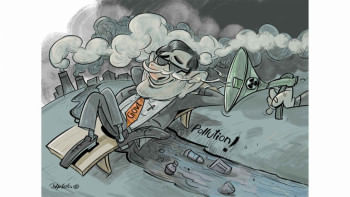


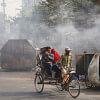
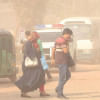
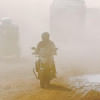
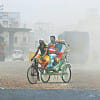
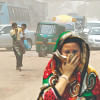

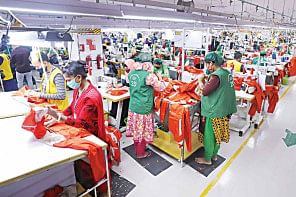
Comments